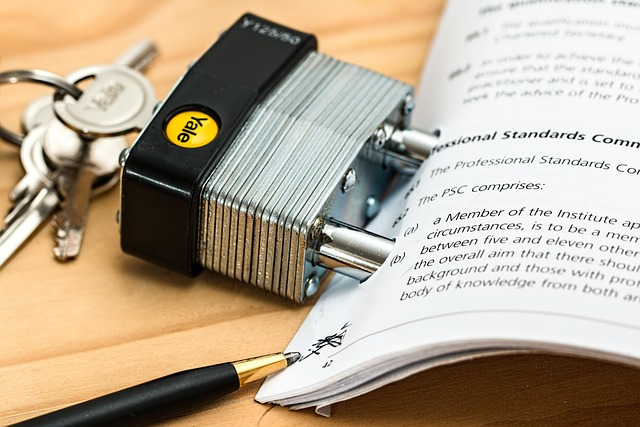Financial agreement mediation is a collaborative process where a neutral mediator assists divorced couples in reaching a fair and mutually acceptable financial settlement, avoiding costly litigation. This method allows for tailored division of assets like real estate and retirement funds through open communication, creative problem-solving, and structured negotiations. Spouses actively participate by disclosing assets and compromising, saving time, money, and fostering control over the divorce process. Mediation focuses on collaboration rather than conflict, enabling informed decisions and sustainable financial agreements post-divorce. After reaching an agreement, legally binding documents are drafted to ensure implementation and prevent future disputes.
“Divorce can be a complex process, especially when significant assets like real estate, retirement accounts, and shared investments are involved. Mediation for equitable property division offers a collaborative approach to ensuring fair distribution. This article explores financial agreement mediation, its benefits, and key roles in the process. We’ll guide you through preparation, strategies for reaching agreements, and implementation, empowering you to navigate this critical phase with confidence.”
- Understanding Financial Agreement Mediation in Divorce Settlements
- The Benefits of Mediation for Equitable Property Division
- Key Roles and Responsibilities in the Mediation Process
- Preparing for Mediation: What to Expect and Bring
- Strategies for Reaching a Fair and Mutual Agreement
- Implementation and Enforcement of the Mediated Settlement
Understanding Financial Agreement Mediation in Divorce Settlements

Financial agreement mediation is a collaborative process where a neutral third party, known as a mediator, assists divorced couples in reaching a mutually acceptable financial settlement, especially regarding property division and asset distribution. This method is gaining popularity as an alternative to traditional litigation for divorce settlements, offering a more efficient and cost-effective way to divide assets like real estate, retirement funds, and shared investments fairly.
During mediation, the mediator facilitates open communication between both parties, helping them navigate complex financial matters. They guide negotiations, ensuring that each spouse understands their rights and options, and work towards finding creative solutions that meet the needs of both individuals. The goal is to reach a binding agreement that divides assets equitably while considering each spouse’s unique circumstances and future financial security.
The Benefits of Mediation for Equitable Property Division

Mediation offers a collaborative and efficient approach to achieving an equitable property division in divorce cases, where couples seek a mutually agreeable solution. This process allows both parties to have a say in how their shared assets are distributed, ensuring fairness and minimizing conflict. By engaging in financial agreement mediation, spouses can work together to create a customized plan that addresses their unique circumstances.
Unlike court-ordered divisions, which may result in an unfair or rigid allocation of assets, mediation encourages open communication and the exploration of creative solutions. It provides a safe space for couples to negotiate, resolve disputes, and reach a financial agreement that satisfies both parties. This method can save time, reduce legal fees, and foster a sense of control and satisfaction with the divorce process.
Key Roles and Responsibilities in the Mediation Process

In the mediation process for equitable property division, several key roles and responsibilities come into play to ensure a fair and mutually agreeable financial agreement. The mediator acts as an impartial third party, facilitating open communication between both parties and guiding them towards a resolution. They are responsible for creating a safe and structured environment where sensitive financial discussions can take place without the pressure of traditional courtroom settings.
Each party also plays a crucial role. They are expected to actively participate in the process, openly disclosing their assets, including real estate holdings, retirement accounts, and shared investments. This transparency is essential for reaching an equitable division. Additionally, both parties should be prepared to compromise and collaborate, working together with the mediator to navigate complex financial matters and find creative solutions that cater to each individual’s needs and interests.
Preparing for Mediation: What to Expect and Bring

Preparing for financial agreement mediation involves understanding its structure, benefits, and what to bring. Unlike court proceedings, mediation offers a collaborative approach where both parties actively participate in reaching an agreement. The mediator acts as a neutral third party, guiding discussions and helping couples navigate complex financial matters related to divorce settlements.
To ensure a productive session, it’s crucial to assemble relevant documents, including real estate deeds, retirement account statements, investment portfolios, and any other shared assets. Additionally, have ready financial disclosures detailing income, debts, and assets. These preparations enable participants to clearly articulate their needs, enabling the mediator to facilitate a fair and equitable division of property.
Strategies for Reaching a Fair and Mutual Agreement

Reaching a fair and mutual agreement in divorce settlements, especially regarding property division, can be facilitated through financial agreement mediation. This process encourages open communication between spouses to identify shared goals and create a plan that meets both parties’ needs. Mediators, trained in financial matters, help couples navigate complex assets like real estate, retirement accounts, and investments by providing unbiased guidance and structured negotiations.
Effective strategies include full disclosure of all financial information, clear evaluation of each asset’s value, and exploring creative solutions like equity splits or tailored distribution plans. By focusing on collaboration rather than conflict, mediation empowers spouses to make informed decisions, maintain control over their future, and achieve a sustainable financial agreement that supports their well-being post-divorce.
Implementation and Enforcement of the Mediated Settlement

After reaching a mutually agreeable financial agreement through mediation, the next step is seamless implementation and enforcement. This involves translating the terms discussed into a legally binding document, such as a settlement agreement or divorce decree. Once signed by both parties, these documents become enforceable in court, ensuring that either spouse adheres to their obligations regarding property division.
The process may include dividing real estate assets, equitably distributing retirement accounts, and settling shared investment portfolios. Effective enforcement guarantees that the intended distribution occurs without further disputes, providing a clear framework for managing financial affairs post-divorce.
